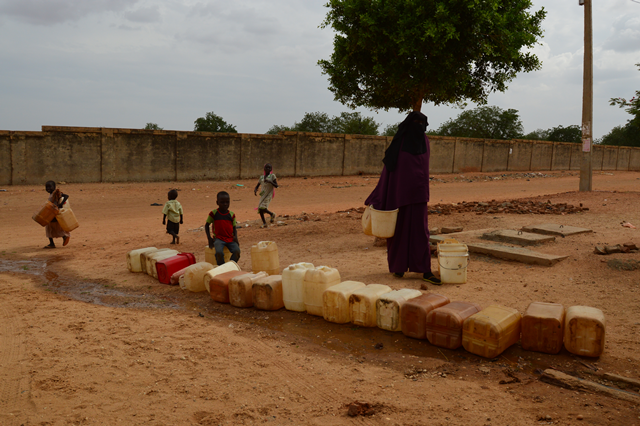Press releases
New publication \ "Leaving them behind"—Global trends in forced migration
In 2030, the envisaged year of the accomplishment of the Sustainable Development Goals (SDGs), millions and millions of displaced people will still be living under precarious conditions. The recent BICC Policy Brief identifies global trends of forced migration that will challenge the international community in the coming decade.

Forced migration is linked to the emergence, dynamics, and escalation of violent conflicts, and so it is difficult to predict or capture its actual scale. What is more, the extent to which climate change may affect new flows of refugees is also unknown. Nevertheless, it is clear that the number of forced migrants will not decrease in the coming decade, but rather continue to rise. To date, approximately 70.8 million people have fled their homes. Survival “in displacement” will become normal for the vast majority of forced migrants unless policy-makers radically change their course and find durable solutions for them. Based on many years of empirical research at BICC on forced displacement, the authors Markus Rudolf, Conrad Schetter and Clara Schmitz-Pranghe identify five trends for the coming decade:
\ Without ending long-lasting violent conflicts, the current vast influx of refugees will continue to be high.
\ The number of forced migrants that are affected by protracted refugee situations (PRS) will rise markedly due to demographic growth alone, even if no new conflicts emerge.
\ The Global North is sealing itself off.
\ The increasingly restrictive attitude of many countries provokes irregular migratory movements.
\ The aid policy towards forcibly displaced people will undergo a drastic change.
BICC Policy Brief 1\2020 "’Leaving them behind’—Global trends in forced migration” (pdf, in English)
BICC Policy Brief 1\2020 "’Leaving them behind’ - Trends globaler Fluchtdynamiken” (pdf, in German)
\ Without ending long-lasting violent conflicts, the current vast influx of refugees will continue to be high.
\ The number of forced migrants that are affected by protracted refugee situations (PRS) will rise markedly due to demographic growth alone, even if no new conflicts emerge.
\ The Global North is sealing itself off.
\ The increasingly restrictive attitude of many countries provokes irregular migratory movements.
\ The aid policy towards forcibly displaced people will undergo a drastic change.
BICC Policy Brief 1\2020 "’Leaving them behind’—Global trends in forced migration” (pdf, in English)
BICC Policy Brief 1\2020 "’Leaving them behind’ - Trends globaler Fluchtdynamiken” (pdf, in German)


